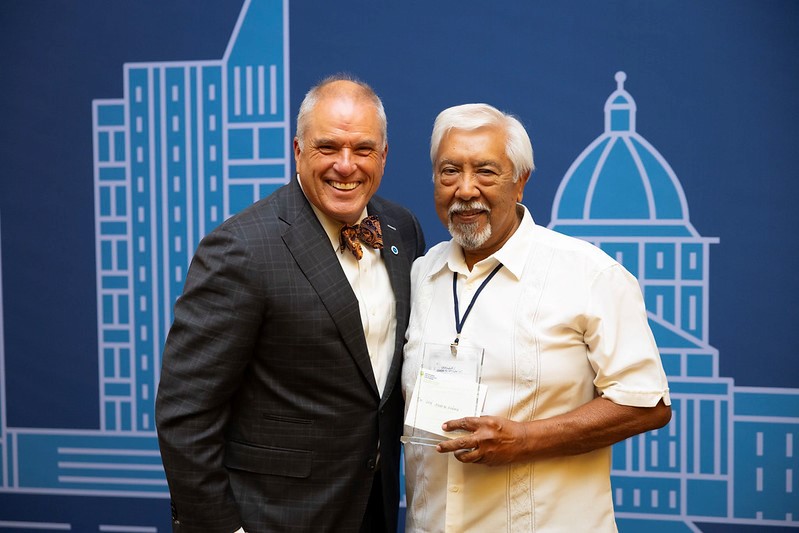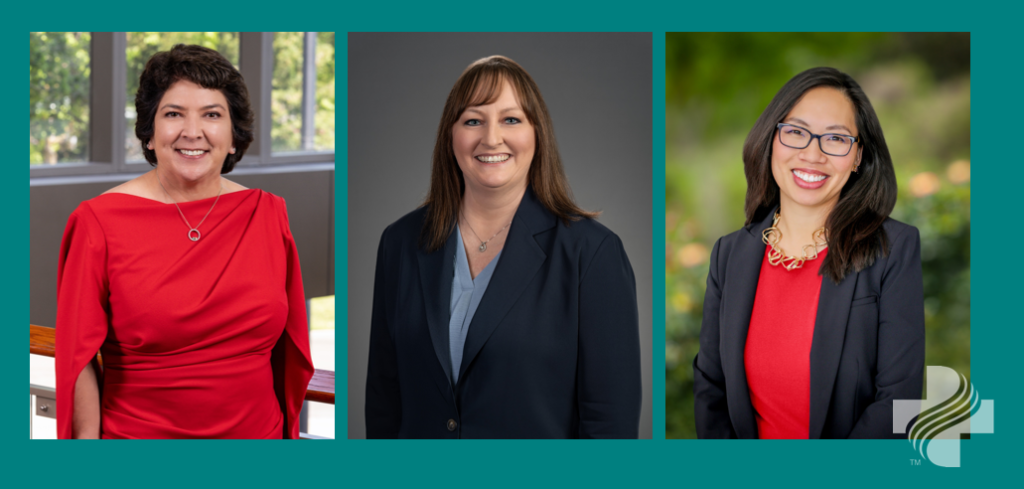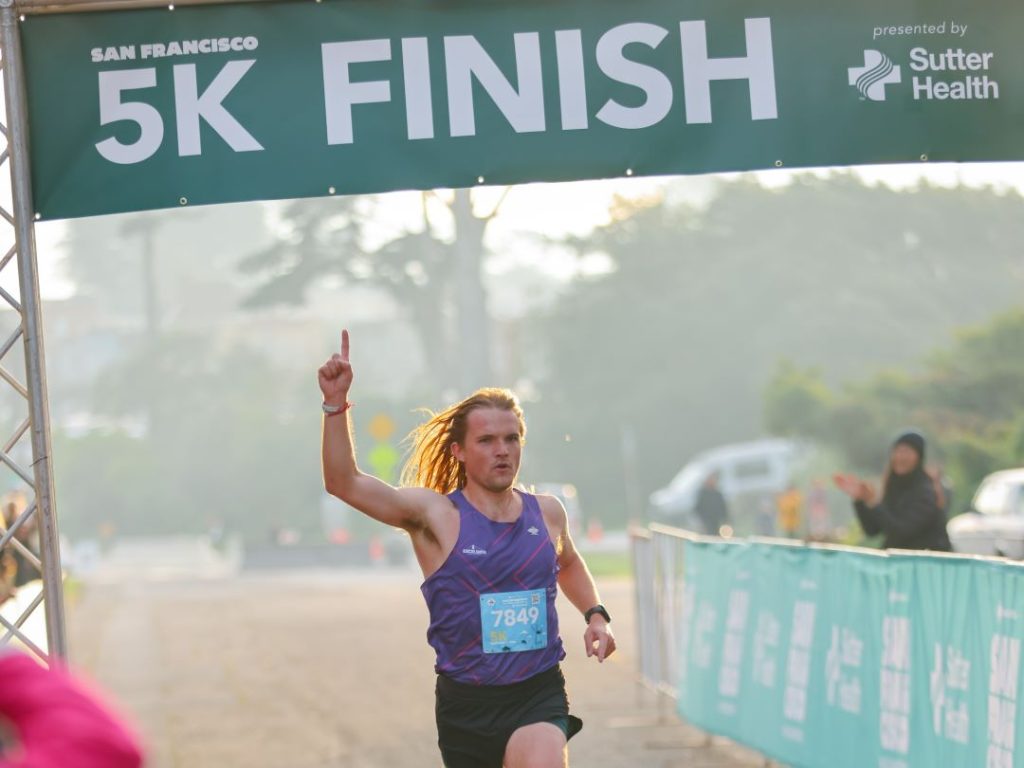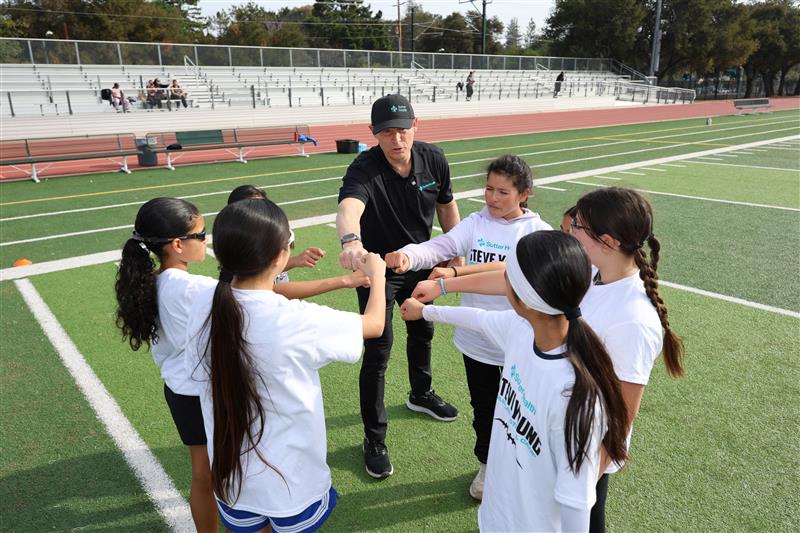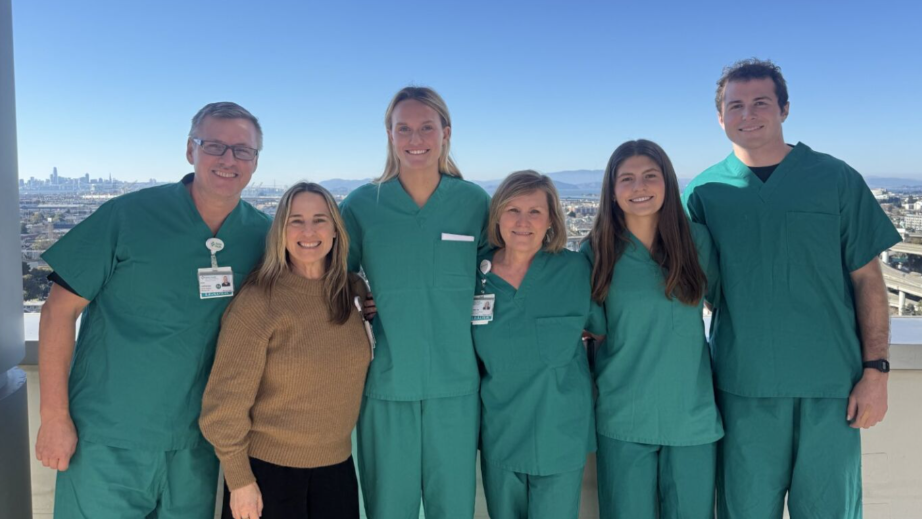For decades Dr. José Alberto Arévalo (above, right) has led efforts to build a more diverse physician workforce and reduce healthcare disparities experienced by the Hispanic/Latino community. In fact, many of today’s calls for change, including the National Latino Physician Day campaign, stem from his 40+ years of eye-opening advocacy.
Fittingly, on National Latino Physician Day, Sutter is proud to recount Dr. Arévalo’s path to medicine and celebrate just some of his accomplishments in academia, health systems and the wider medical community.
Dr. José Alberto Arévalo is quick to tell you that the word “doctor” comes from the Latin word for “teacher.” It’s an indication of how he sees himself, and for good reason. He’s taught countless aspiring Latino physicians over the past four decades.
“It’s a calling to be a doctor, I felt like I owed it to my community,” Dr. Arévalo says of his life’s work.
The son of healers who used natural remedies like herbs, prayer and massage, Dr. Arévalo didn’t always want to be a physician. “I saw a lot of illness as a child, tended by my mother and grandmother in our living room, and I thought I’d had enough,” he remembers. Thankfully, fate intervened.
The Vietnam era draft took Dr. Arévalo from San Antonio, Texas to San Francisco, California where he would spend four years as a U.S. Navy Hospital corpsman with a big part of his time as a lab tech at Hunter’s Point Naval Shipyard Medical dispensary. Off-duty hours were spent attaining a lab tech license and volunteering at Guadalupe Health Center, located a few blocks from his house.
“The clinic’s executive director asked me if I wanted to come to a board meeting to give the ‘consumer’ perspective, so I did,” he recalls. Eventually Dr. Arévalo joined the clinic’s board while also pursuing an undergraduate degree at the University of California, Berkeley. Learning from the social justice and civil rights movements of the time, while witnessing medical inequities in the Latino community, soon highlighted a problem he couldn’t ignore.
“I realized how difficult it was to get doctors to treat the underserved and how few physicians were Latinx,” Dr. Arévalo says simply. He enrolled in medical school at Stanford University and quickly helped form La Raza Medical Association, the origin of what is now the Latino Medical Student Association.
“We called it La Raza – which means ‘the race’ in Spanish – because it was race that held people back from opportunities and created clear disparities in health, even though race is not a biological construct but rather a social and political one.”
When Dr. Arévalo graduated from Stanford School of Medicine in 1980 he was one of six Latino physicians from a class of 87. Residency and fellowship in Family Medicine at University of California, San Francisco followed. In 1986, Dr. Arévalo signed on with University of California, Davis School of Medicine as assistant professor of Family Medicine.
“I was the only full-time, tenured track, Latino faculty at a UC Medical School at the time,” Dr. Arévalo remembers. Far beyond a feather in his cap, teaching would become a concrete way for Dr. Arévalo to improve health disparities he knew existed in the Latino community.
“When doctors look like and talk like their patients, when they have lived their patient’s experiences, then those patients get better quality care,” he says. To encourage a more diverse physician workforce, he established the Minority Initiative Program, which offered peer mentoring and other forms of support to UC Davis medical students from historically under-represented backgrounds.
He also became the instructor of record for Clinica Tepati, a student-run health clinic serving a predominantly Spanish-speaking and uninsured patient population.
“Clinica Tepati is so unique because students experience the full hierarchy of learning, from undergraduate students who book appointments and function as the key support staff, to the medical students who learn how to provide care, while under the supervision of residents who are learning how to teach, to the board-certified doctors who oversee the overall clinical and teaching operations of the clinic” Dr. Arévalo says. The clinic still provides culturally informed care today from its headquarters in the Wellspace Health Center, located at 1820 J Street in Sacramento, California.
The other side of the coin from recruitment and training is championing those same individuals once they become doctors. Here too Dr. Arévalo has been a leader, founding the Sacramento Latino Medical Association in 2006 and Latinx Physicians of California in 2012.
While the main objective of these organizations is to continue addressing the Latino physician shortage, they’ve accomplished a great deal more.
Latinx Physicians of California has partnered with the California Medical Association to educate doctors on electronic medical records, the state insurance exchange (called Covered California), and new reporting requirements or payment pilots offered by the Centers for Medicaid and Medicare Services. Latinx Physicians of California also has a rich job board and forum to connect doctors to resources and to breaking medical news.
“There are many Latino physician practices that provide care to underserved communities, which I call the silent safety-net, because they’re largely run by independent doctors who are willing to see a percentage of patients who have MediCal,” Dr. Arévalo explains. MediCal is California’s term for Medicaid.
One innovation that Dr. Arévalo brought to the ‘silent safety-net’ was a vendor called Optumus which employs low-cost but highly skilled outreach specialists in Mexico who can call patients in the US to remind them of upcoming appointments or follow-up on administrative tasks.
Through his work with Latinx Physicians of California, Dr. Arévalo was also exposed to state-wide policy work and in it found a new way to reduce health disparities. Starting in 2019, he served on the California Master Plan for Aging Stakeholder Advisory Committee, which is sponsored by the California Health and Human Services Agency. More recently he has also championed screening for Adverse Childhood Experiences or ACEs in medical visits.
Acutely aware that a disproportionate percentage of incarcerated people are Latino or Black, Dr. Arévalo believes that change must happen outside of the correctional system, and long before someone is put behind bars. “It is clear that childhood trauma many times is at the core of psychological, physical and sexual abuse that can lead to substance use disorder and other criminal behavior, but if we can alleviate some of the toxic stress that children experience, by providing resources and support, maybe we can make a dent in reducing future prison populations.”
Dr. Arévalo is currently working with Dr. Jenny Espinoza, former Chief Physician and Surgeon of California’s state prison healthcare system, to advance Back to the Start, a civic and social organization that produces powerful narratives – written by incarcerated people – to underscore the need for investment in early childhood and family resources.
Equally excited about prevention in the clinical realm, Dr. Arévalo is impressed by new medications and screening tools for fatty or metabolic liver disease, one of the leading causes of liver failure and the need for liver transplants in the US and a disease that disproportionately impacts the Latino community. “With ultrasound-like tests we can find early disease before it turns into liver failure – so now we need to make sure that doctors, physician assistants, nurses and others know about these tools and think to use them when they see a patient who might be at risk,” he says.
Optimism is the core of Dr. Arévalo’s character – and it has allowed him to tackle big challenges. In addition to his advocacy work, he’s held increasingly senior leadership roles in healthcare, from Regional Medical Director to Senior Vice President for Medical Affairs to Chief Medical Executive. His 21 years with Sutter Health stands out as a particular point of pride.
And optimism is what he will continue sharing, with policy leaders, healthcare executives, professional associations and even undergraduate students interested in medical careers, whom he connects with through Mi Mentor.
“Our job is to teach patients how to pursue a better, healthier life,” he says. He’s taught far more than patients how to pursue a better, more equitable healthcare system.
- July 11, 2024 Robert D. Sparks, M.D. Leadership Award 2024. Physicians for A Healthy California, formally known as the CMA Foundation. This award recognizes an individual who has demonstrated outstanding dedication to the health of communities in a manner consistent with PHC’s mission to champion community health, health equity, and diversity in the physician workforce in partnership with leaders in medicine, related health professions and the community.
- June 16, 2017 Pioneer Award. National Medical Fellowship, recognizing a lifelong commitment to improving health care to underserved communities. Presented at National Champions of Health Awards Ceremony, Los Angeles, CA
- January 14, 2014 President, Sacramento Sierra Valley Medical Society, local Medical Society for Sacramento, Yolo and El Dorado County.
- October 12, 2013 2013 Ethnic Physician Leadership Award. CMA Foundation. Awarded at the CMA House of Delegates Annual Foundation Dinner. Anaheim, CA.
- June 12, 2010 William Black Award as Outstanding Contributions to Sacramento’s Medical Community. Sacramento Sierra Chapter of California Academy of Family Physicians. Presented in Sacramento, CA.
- January 22, 2008 National Leadership in Hispanic Health. National Hispanic Medical Foundation. Washington, DC. Presented in Sacramento, CA.
- June 12, 2006 The California Wellness Foundation 4th annual Champions of Health Professions Diversity Award Recipient- 2006. Presented in San Francisco, CA
- April 12, 2003 Lifetime Achievement Award. Clinica Tepati and the UC Davis School of Medicine Sacramento, California.
- June 8,1994 Kaiser Award for Excellence in Teaching. U.C. Davis School of Medicine. Awarded by the Graduating Class of 1994,
- May 5, 1994 White House Invitee for Special Briefing on The Health Security Act: California Opinion Leaders Meeting with Hilary R. Clinton. Washington, D.C.
- Oct 21, 1992 Lifetime Achievement Award for Outstanding Contributions to Latino Health Issues. Presented by the Chicano/Latino Medical Students Association of California. Presented at the Annual Meeting in Los Angeles, CA.
- 1983 Parke-Davis American Academy of Family Practice Teacher Development Award. National Recipient.
- 1975 – 1976 National Honor Society; University of California, Berkeley

